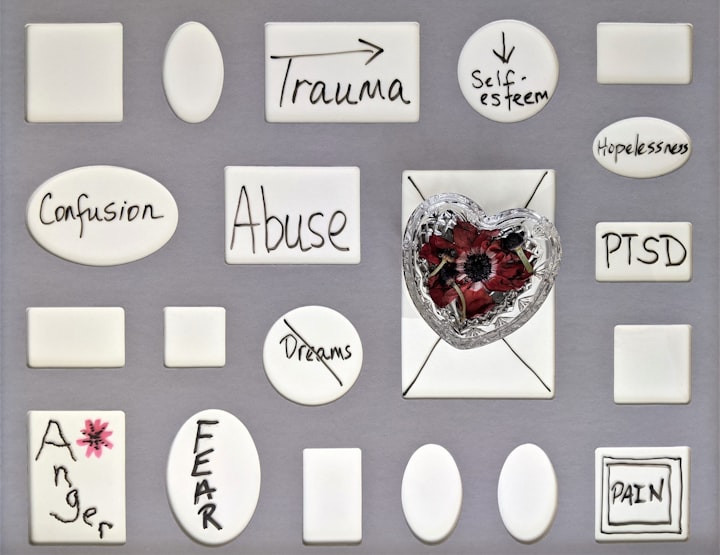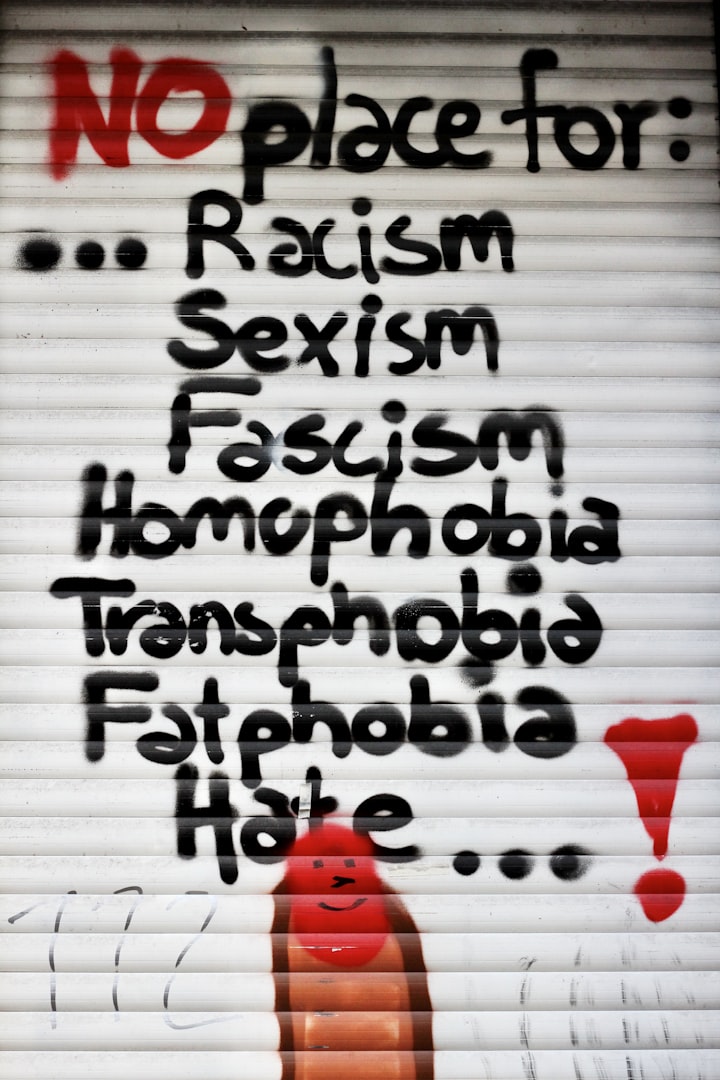Trauma, Grief, and Loss
My work since the 80s.

Can we fill in the rest of the frames? Yes. For sure we can add grief and loss. Chronic bereavement is another. Overdose. Suicide. Addiction. More specific abuse; rape, domestic violence, incest, physical and emotional neglect. Or fill in the blanks with your trauma.
It can be shock, depression, bargaining, and we can come to acceptance. That doesn't happen by itself, however. There is a process that we go through. We need to do our work to get to acceptance.
For some, it is losing a significant other, child, parent, sibling, best friend, or pet. A woman I attended meetings with cried for a year at those meetings after she quit smoking cigarettes.
I was in training at St. Mary's years ago and there were 50+ people in the audience. Only 5 Native Americans. Ben Wolff, the grief specialist, had a continuum on the board and wrote ages 0-5 and asked for the hands of people who had a significant loss. Native hands went up. No one else.
Then he moved on to ages 5-10 and again, the same thing happened. Native hands were the only hands going up until 20-25, then the other's hands went up. I have been talking about the importance of doing grief work with Native American people ever since that training.
Before I retired at my last place of employment, I found out that everyone was not doing that work with program participants. Not mental health and not substance abuse professionals.
It occurred to me that is why we have so many revolving door people and so many people that simply do not make it.
As professionals can we blame the program participant? We can sit back and say, "Well, some will just not make it!" And be okay with that? Or say, "They have to be ready!" What about those people who weren't ready and get recovery?
I thought the photo above looked familiar so I went back through my stories and found the following story...
It is okay to read or not read. Some of my work is described in that story. In this one, I was planning to focus more on the importance of trauma-informed care programs to include all staff, not just the counseling staff.
I have worked in programs where the counseling staff were not doing their work. One counselor had a small percentage of his caseload that had experienced abuse. I was looking at 98% of my caseload. The other 2% just weren't going there with me.
Some people have memory gaps as a survival mechanism. They can't remember a chunk of their childhood. Usually though, without their drug/alcohol, they remember fairly quickly.
My recommendation is to encourage all employees to have a music, dance, writing, art project, or hobby that they do regularly for healing. I recommend they have at least one supportive friend with whom they can talk about anything. And that they do.
If not, then consult a therapist, clergy or other professional where this is part of what they do. Sometimes recovery coaches will do this. And hospitals sometimes have groups for different kinds of loss. I have cancer support sisters who are there for me, for example.
When helping individuals to find what works for them, only identify a project as art therapy if you are an art therapist. Even if you learn a few things from an art therapist as I did in one of my positions, I can not ever say the work I am doing is art therapy, even though I believe it always is.
I recommend taking time each day with a new loss. Even just 15-20 minutes to write, cry, think about the person, pet, or other loss, look at pictures, and read or watch the information about grief and loss. Then stop and move on with your day.
Getting a basic understanding of the importance of grieving is for you in healing your trauma, grief, and loss and it is especially important in working with others. How to fit grieving in without it taking over your life is so helpful.
Storytelling with lessons can be a benefit. Most importantly, work on yourself! Self-care is a good practice. I always want the healers to do their healing work and I encourage that every chance I get. You can too.
In the Native American culture, I have been to the wiping of tears and cedar ceremonies. Both ceremonies help with the grieving process. My mother told me other things would happen when there was a death that wasn't as well known. Families will often have their ways.
I encouraged learning more about the culture, including sweat lodge and other ceremonies. Keeping lists of helpers for your program participants is good. You may also feel comfortable talking to someone on your list.
It is so important to have help for trauma, grief, and loss. Most of us are not taught how to grieve by our family or friends. We can be affected by our loved ones' trauma, grief, and loss, even when we are not close to the loved one or to the trauma.
About the Creator
Denise E Lindquist
I am married with 7 children, 27 grands, and 12 great-grandchildren. I am a culture consultant part-time. I write A Poem a Day in February for 8 years now. I wrote 4 - 50,000 word stories in NaNoWriMo. I write on Vocal/Medium weekly.
Enjoyed the story? Support the Creator.
Subscribe for free to receive all their stories in your feed. You could also pledge your support or give them a one-off tip, letting them know you appreciate their work.







Comments (13)
Congratulations on your top story.
I will let the World know about Dr, Jumba. Do you have problems in your relationship ? Has your partner broken up with you and you still love and want him back ? Do you have problems with your finances ? or do you need help of any kind then contact Dr, Jumba today for i give you 100% guarantee that he will help you just as he helped me. wiccalovespelltools @ gmail. com
Your tenacity is truly remarkable. Keep pushing through any obstacles in your path.
Grief is a topic that we all will get to experience and most of us will never fully understand it or how to cope with it. I appreciated your piece and the knowledge you shared. Thank you for writing it and congrats on TS.
You write of such important work. Well deserved Top Story. 💕🩷💙
Congrats on Top Story!🥳🥳🥳
Back to say congratulations on your Top Story! 🎉💖🎊🎉💖🎊
Great story
Beautiful top story. I found it inspiring.
Thank you for sharing the selfcare and support article!!! Loved it!!!❤️❤️💕 Congratulations on Top Story!!!
Denise, will you teach us about the "In the Native American culture, I have been to the wiping of tears and cedar ceremonies?"
I learnt recently from Paul's piece that these memory gaps are called dissociative amnesia. I have this but didn't know there was a term for it
Lovely, insightful story, Denise. People need to grieve fully right away or the grief holds them, buries them. Thank you for your life work!